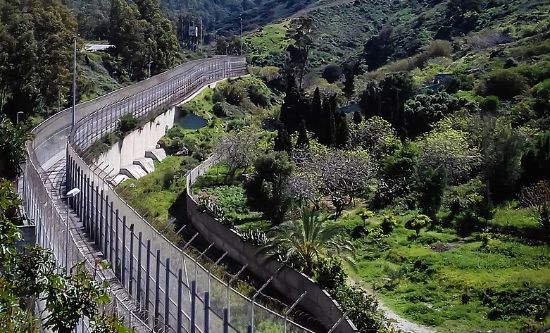
In May, Morocco opened its border with the Spanish enclave of Ceuta, prompting 8,000 people, including 850 children, to enter the autonomous port city, intending to migrate to Spain. It was a move motivated on Morocco’s part by its relationship with Western Sahara, a former Spanish colony now seeking independence from Morocco. For its part, the Spanish government responded to the influx of migrants with violence and deportations, deploying the Army and other repressive state forces. XABI AIERU reports.
The official reason – or cheap excuse – given by Morocco was the admission to a Spanish hospital of Brahim Ghali, leader of the Sahrawi liberation movement, the Polisario Front. Morocco accused Spain of creating a crisis by allowing Ghali into its territory and offering him medical assistance. The Moroccan Foreign Minister claimed this ‘affects the interests of Morocco’. In response, Morocco decided to ‘stop protecting’ the border, allowing the passage of thousands of people into Spanish territory – in effect putting human lives in jeopardy in order to blackmail Madrid.
However, it is also the expression of a number of ongoing conflicting interests. Morocco wants to obtain more resources to keep controlling the external borders of the European Union, since Spain has been effectively using it for years as border police. A similar situation occurred in Turkey with the refugee crisis; both countries have used their position on migration routes to pressure the EU and get more aid. There is also the issue of the fishing agreement between Rabat and Brussels renewed in 2019 that allowed 128 European vessels to fish in territory belonging to Western Sahara. This is despite the fact that a previous resolution of the European Court of Justice established that the products collected in Western Sahara cannot be part of trade agreements between Morocco and the EU, as Morocco does not have jurisdiction over the Saharawi territory.
The Polisario Front brought a legal challenge, claiming that the pact ‘promotes the policies of Moroccan military occupation in the Sahara’ and the parties to it have no competence ‘to enter into agreements that affect a Non-Autonomous Territory pending decolonisation’. Under the pact, the government in Rabat receives €52m annually from the EU. Any annulment of the deal by the European court would therefore be a severe blow to Morocco’s interests in Western Sahara, where it also obtains income through mining phosphate, salt and other minerals.
The Spanish response
Faced with this situation, the ‘most progressive Spanish government in history’ has responded with violence, repression, mass expulsions and the violation of human rights. Meanwhile, across the spectrum from the left (including so-called ‘communists’) to the extreme right, the main political trends in Spain are framing events in Ceuta in entirely chauvinist terms, as a conflict between two nation states. They say that ‘we must defend Spain because it is being threatened’. Some say the threat is from the Moroccan state, others demonise the migrants, but the one thing they agree on is that Spanish sovereignty and borders must be defended. But they are wrong, because the conflict is actually based on the clash of imperialist interests of the bourgeoisies – not in an abstract clash of nations.
Part of the plan of the Moroccan ruling class is to pressure the EU and, above all, the United States, to support their attempt to permanently annex Western Sahara, a territory currently occupied and repressed by Morocco. Spain is a means of pressure to that end. The lives of working class migrants are just pawns in that game. Driven by poverty and the lack of any future in Morocco, thousands have grasped the false hope cynically created by the state. Many climbed border fences, swam across dangerous waters or risked their lives on flimsy boats to reach Ceuta, only to face brutal repression from Spain, including rounds of tear gas, and an accelerated programme of deportation. By 21 May, at least 6,000 migrants had been forcibly expelled.
What is needed in Spain as in Morocco is genuine internationalist solidarity, both with the migrants and with the oppressed people of Western Sahara and unstinting opposition to Europe’s racist immigration policies.




